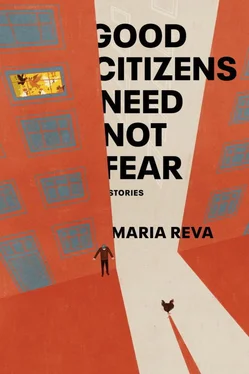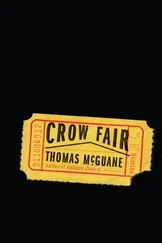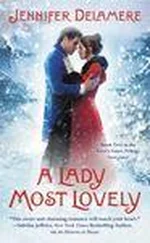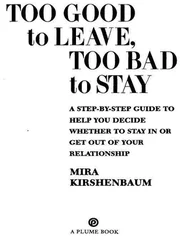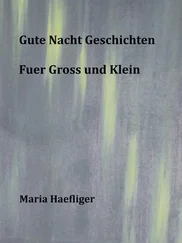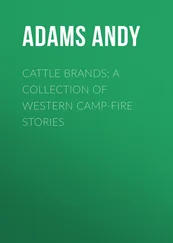Maria Reva - Good Citizens Need Not Fear - Stories
Здесь есть возможность читать онлайн «Maria Reva - Good Citizens Need Not Fear - Stories» весь текст электронной книги совершенно бесплатно (целиком полную версию без сокращений). В некоторых случаях можно слушать аудио, скачать через торрент в формате fb2 и присутствует краткое содержание. Город: New York, Год выпуска: 2020, ISBN: 2020, Издательство: Doubleday, Жанр: Современная проза, humor_satire, на английском языке. Описание произведения, (предисловие) а так же отзывы посетителей доступны на портале библиотеки ЛибКат.
- Название:Good Citizens Need Not Fear: Stories
- Автор:
- Издательство:Doubleday
- Жанр:
- Год:2020
- Город:New York
- ISBN:978-0-38554-529-7
- Рейтинг книги:3 / 5. Голосов: 1
-
Избранное:Добавить в избранное
- Отзывы:
-
Ваша оценка:
- 60
- 1
- 2
- 3
- 4
- 5
Good Citizens Need Not Fear: Stories: краткое содержание, описание и аннотация
Предлагаем к чтению аннотацию, описание, краткое содержание или предисловие (зависит от того, что написал сам автор книги «Good Citizens Need Not Fear: Stories»). Если вы не нашли необходимую информацию о книге — напишите в комментариях, мы постараемся отыскать её.
Good Citizens Need Not Fear: Stories — читать онлайн бесплатно полную книгу (весь текст) целиком
Ниже представлен текст книги, разбитый по страницам. Система сохранения места последней прочитанной страницы, позволяет с удобством читать онлайн бесплатно книгу «Good Citizens Need Not Fear: Stories», без необходимости каждый раз заново искать на чём Вы остановились. Поставьте закладку, и сможете в любой момент перейти на страницу, на которой закончили чтение.
Интервал:
Закладка:
“It isn’t here,” says Pyotr.
“It got rubbed off,” relays Lila.
“A genuine mark can’t get rubbed off. It’s branded onto the exoskeleton,” the pawnbroker explains. “What you have there is counterfeit, the so-called jewels worthless as pebbles.”
“But the insect—that part is real.”
“Without the jewels,” the pawnbroker says, “it’s just a roach.”
In the kitchen, Pyotr is still holding the insect. He’s entranced by its rear end. There’s something wrong with it. A wet white glob is squeezing out. The roach slips from between his fingers and falls onto Pyotr’s stomach, where it clings to his woolly sweater. Its weight feels both repulsive and comforting. The white mass begins to separate into wiggling fingers, with tiny black dots at the tips. Eyes. The shimmering nymphs are attached to a string, like a crystal garland. Impossible to count them all as they unspool. Fifty, sixty?
Pyotr has never seen anything like it. His own children were born behind closed doors; he had to wait in a hospital corridor with the other expectant fathers, trying to distinguish his wife’s howls from the chorus of other women.
In the light, the babies spring awake, detach themselves from their string. But they don’t just scamper away. They crawl all over the mother, and she becomes furry with antennae. They eat the string that once bound them together. This is how they’ll grow strong. Within an hour, their shells will harden to a caramel color.
At this very moment, the pawnbroker is imploring Lila to get rid of the knockoff as soon as possible. In the factories, the breeders don’t bother to sort the males from the females; often the females are pregnant when sold.
But by the time the grandmother hangs up and reenters the kitchen, the grandfather’s sweater is covered with babies. They eat the crumbs from his breakfast, hardly larger than crumbs themselves. Pyotr looks up at Lila and smiles, eyes shining. She can’t help but smile with him when he says, “Aren’t they beautiful?”
THE ERMINE COAT
On the way back from the bazaar, Aunt Milena points to the cracks under the balconies of our building. She warns me never to walk or stand under them, unlike those pilgrims lined up for the tomb. “Little by little,” she says, “we’re sinking into the soft earth.”
Knowing what comes next, I lift my net sack to my chest, hide behind the leafy beet stalks. Over the past month Aunt Milena has used any excuse to remind me that our family’s misfortune is my fault. Even the rat-size cockroach she was trapped with in the elevator last week—also, apparently, my doing. If it weren’t for my misbehavior, my mother, sister, and I could have left this collapsing building, this collapsing country.
But Aunt Milena must be feeling generous today. Instead of scolding me, she sits on her haunches, studies her own boot print in the mud. “There used to be a village here,” she says, and I imagine one no larger than her foot. She tells me the villagers spoke Ukrainian and picked cranberries for a living. Then the marshes were drained, sunflowers sown for oil, the villagers pried from their dung huts and stacked on top of each other. Many of them refused to move into the high-rises, never having lived so far from the earth. “The village was called Ivankiv,” she says. “It lives on as our street name, but Russified.” When she lived in the countryside, doing farmwork in exchange for a bed, the villagers would pass down secret lore.
Aunt Milena moved in with us two years ago, after Grandmother died. All she’d brought with her: the clothes on her back, a rapier, a record player and phonograph, and sixteen vinyl records for Mother to sell (but Mother refused, saying the records wouldn’t be worth much these days anyway).
Some mornings I find Mother and Aunt Milena twisted around each other on the foldout, mouths agape, as though they escaped the same nightmare, just barely.
Like Mother, Aunt Milena is tall with a long pale face. She and Mother could be sisters. When they drop me and my sister off at school, no one asks, and we don’t tell. The neighbors might whisper, but what can they do? Mother says we’re living in an age of freedom. Aunt Milena says we’re living in an age of fifteen brands of sausage, which is not the same thing as freedom. When I ask where are these fifteen brands of sausage, Mother says we need only visit Kiev to find them. Aunt Milena says no Kirovkavite can afford such an indulgence. But whatever the argument, Aunt Milena never wins, because when Mother takes Aunt Milena’s face in her hands and beams her brightest smile, Aunt Milena breaks every time.
Last year, for a five-month stint, Mother and Aunt Milena sewed fur coats for the black market. Mother was already a master seamstress, and Aunt Milena caught on quickly. A large sweaty man whose face hung slack like a bulldog’s would come for the coats on Mondays. Volkov never wore fur himself, only velvet tracksuits, usually maroon. After inspecting the coats, he’d toss stacks of kupony to Mother and Aunt Milena. Twenty, thirty stacks a week. The new currency looked like play money, with its picture of the Sofia Cathedral getting sucked into a flower-shaped black hole, and Aunt Milena told me it was worth about as much. Volkov would drop the next batch of pelts onto the kitchen table. Always the same slick black pelts, as if Volkov had ripped out the stitching from the week before and returned the pieces to be resewn, over and over. No one knew what type of animal they’d belonged to. Something long, caged. Its thick hairs snuck between our bedsheets, under our eyelids and tongues. I worried I’d start coughing up slimy ropes, as our neighbor’s cat was known to do. We picked at our limbs, scratched our scalps. My schoolmates told the nurse I had lice, and if not lice, then definitely worms.
My little sister, five years old, thought everything sold on the black market had to be black. She liked to sit under the kitchen table, tracing the velvet humps of Volkov’s calves until Mother yanked her hand away. I wanted his soft thick thighs, to bite through the fat and meat until my teeth hit bone. He’d been rounding out, a sign that his business was steady.
Now, because of me, Mother is back at her old job at a chemical plant two towns over, rumored to be shutting down anytime, and Aunt Milena cleans floors at a lamp factory. They get paid in perfumes and lamps, but the managers promise money soon. Lamps are bad for barter on account of the blackouts, but sometimes our right-side neighbor trades balcony-grown beans for the perfume. From his yowls and moans across the thin walls, we know he drinks it, but I like to think he’s taken a lover and the perfume is for her.
As for the left-side neighbor, he gets paid in cosmetics, and Mother says his daughters whore around.
It was a Monday visit from Volkov, six months ago, that sealed our fate. He laid a bundle of parchment paper on the kitchen table, slowly unwrapped it. The furs inside glowed white, making everything else look tired and dirty. Each pelt began with two angry slits, the eyes, and ended with a black-tipped tail.
“Ermine,” Volkov said. “Turns white in the winter, except for the tail.”
“Why not the tail?” Mother asked.
“Must be how the animals find each other in the snow,” Aunt Milena said. “Tiny flags.”
“It’s how hunters find them,” he said.
My sister reached out to stroke a tail but Volkov shook his head, as though worried the furs would wake.
“Royal furs were made from ermine,” he said. More impressive still: “Marilyn Monroe wore ermine.”
We didn’t know what to do with such narrow pieces. Aunt Milena nailed them to wooden boards for stretching, but they seized up, as though panicked. I dug my fingers into the smalls of their backs, the spot that makes the most skittish dog melt. Nothing worked. I understood: the thought of being sewn to rows and rows of other girls turned my skin stiff, too.
Читать дальшеИнтервал:
Закладка:
Похожие книги на «Good Citizens Need Not Fear: Stories»
Представляем Вашему вниманию похожие книги на «Good Citizens Need Not Fear: Stories» списком для выбора. Мы отобрали схожую по названию и смыслу литературу в надежде предоставить читателям больше вариантов отыскать новые, интересные, ещё непрочитанные произведения.
Обсуждение, отзывы о книге «Good Citizens Need Not Fear: Stories» и просто собственные мнения читателей. Оставьте ваши комментарии, напишите, что Вы думаете о произведении, его смысле или главных героях. Укажите что конкретно понравилось, а что нет, и почему Вы так считаете.
